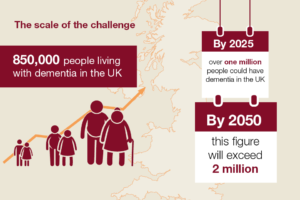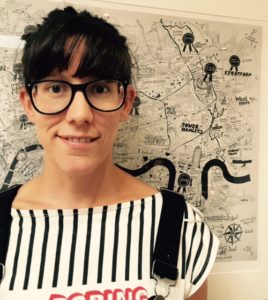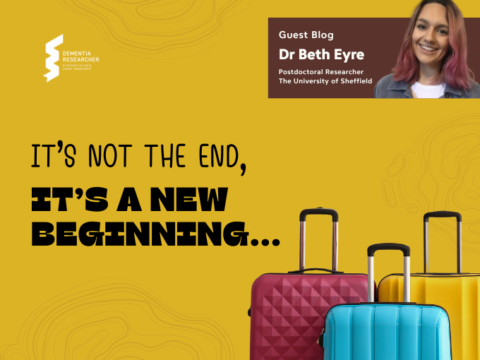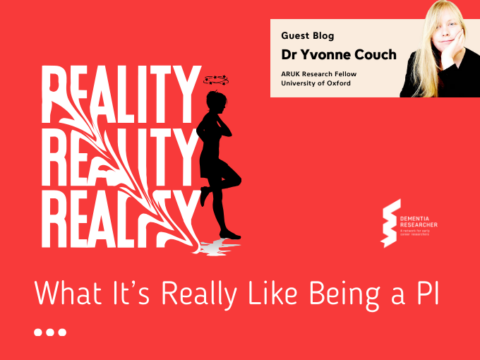 I currently teach on three different courses, the MSc for the speech and language therapists doing their clinical training here at UCL, the MSc for the Neurosciences in dementia course (a mixture of mental health professionals) here at UCL and the MSc in Neuropsychiatry at the Institute of Psychiatry.
I currently teach on three different courses, the MSc for the speech and language therapists doing their clinical training here at UCL, the MSc for the Neurosciences in dementia course (a mixture of mental health professionals) here at UCL and the MSc in Neuropsychiatry at the Institute of Psychiatry.
It is around this time of year that I revisit my lecture slides for the speech and language therapy students I teach. I am now in the fourth year of teaching on the MSc at UCL- I teach two 3-hour lectures focusing on assessment of dementia and then management of dementia (language not swallowing- swallowing is discussed elsewhere on the course). So, 6 hours. I teach one 90 minute lecture on the Neurosciences Masters and roughly 30 minutes at the Institute of Psychiatry (alongside an occupational therapist and a physiotherapist).
Yet, given that the number of people living with dementia is increasing exponentially, this doesn’t seem adequate. In 2015 it was estimated there were 850,000 people living with dementia in the UK and it is anticipated that these numbers will rise to over a million in 2025, and over 2 million in 2050. We are seeing massive increases in the number of people with Dementia on SLT caseloads too – a bigger increase than any other condition being referred to speech and language therapy. Even so, there are reportedly huge barriers to accessing speech and language therapy services- often because people do not know what this service can do for people with dementia (Volkmer, Spector, Warren et al, 2018, Dementia).
In comparison there are around 250,000 people living with stroke related aphasia in the UK. And the current NICE Guidelines on Stroke Rehabilitation recommend to refer people with suspected communication difficulties after stroke to a speech and language therapist for detailed analysis of speech and language impairments and assessment of their impact.
Given the certain progression and decline in cognition and communication that is imminent in dementia perhaps more people with dementia could benefit from a referral to a speech and language therapist. That said we require a significant increase in the standard of research to underpin this recommendation. It might also be suggested we need more teaching on dementia on the speech and language therapy courses. But perhaps this may be a more gradual process, as our role with people with dementia evolves, as the evidence improves and as we spread the word about what speech and language therapists may be able to offer.
The fact that our understanding of dementia is improving more generally indicates things are changing. Almost everyone has been affected by dementia in some way, be it a friend or acquaintance, a distant relative, a close relative or themselves. This is a change from the recent past; older people may tell you that none of their grandparents had dementia- it wasn’t really around when they were young, or at least it wasn’t spoken of, or understood. As the number of people living with dementia increases, our understanding of the disease improves and we hear more about it. Dementia features in the paper more and more often. People want to know what they can do to prevent the onset of dementia, how can they keep their brains as healthy as possible, what hope there is for treatment, and about the care for our vulnerable relatives living with dementia.
I have decided to start my lectures with some examples of the current tabloid headlines from 2018:
- Dementia cure ‘Within a Decade’ (Daily Express)
- Eye test to Beat Dementia (Daily Mirror)
- Toxic air ‘to blame for 60,000 cases of Dementia (Daily Mail)
- Eat curry to beat dementia (Daily Express)
- Dementia risk from Diabetes (Daily Express)
Dementia has become the most feared condition amongst people in their middle age, more than cancer. As yet there is no cure for dementia. Our patients and their families are searching for information. We (the health professionals and researchers) may be asked for information about dementia. We need to know what we can offer, what therapy interventions work and what the evidence says. We need to spread the word. We also need a better care pathway.
Author
Anna Volkmer is a Speech and Language Therapist and NIHR Doctoral Research Fellow working in Language and Cognition, Department of Psychology and Language Sciences, University College London. Anna is researching Speech and language therapy interventions in language led dementia.
You can follow Anna on Twitter Follow @volkmer_anna

 Print This Post
Print This Post




